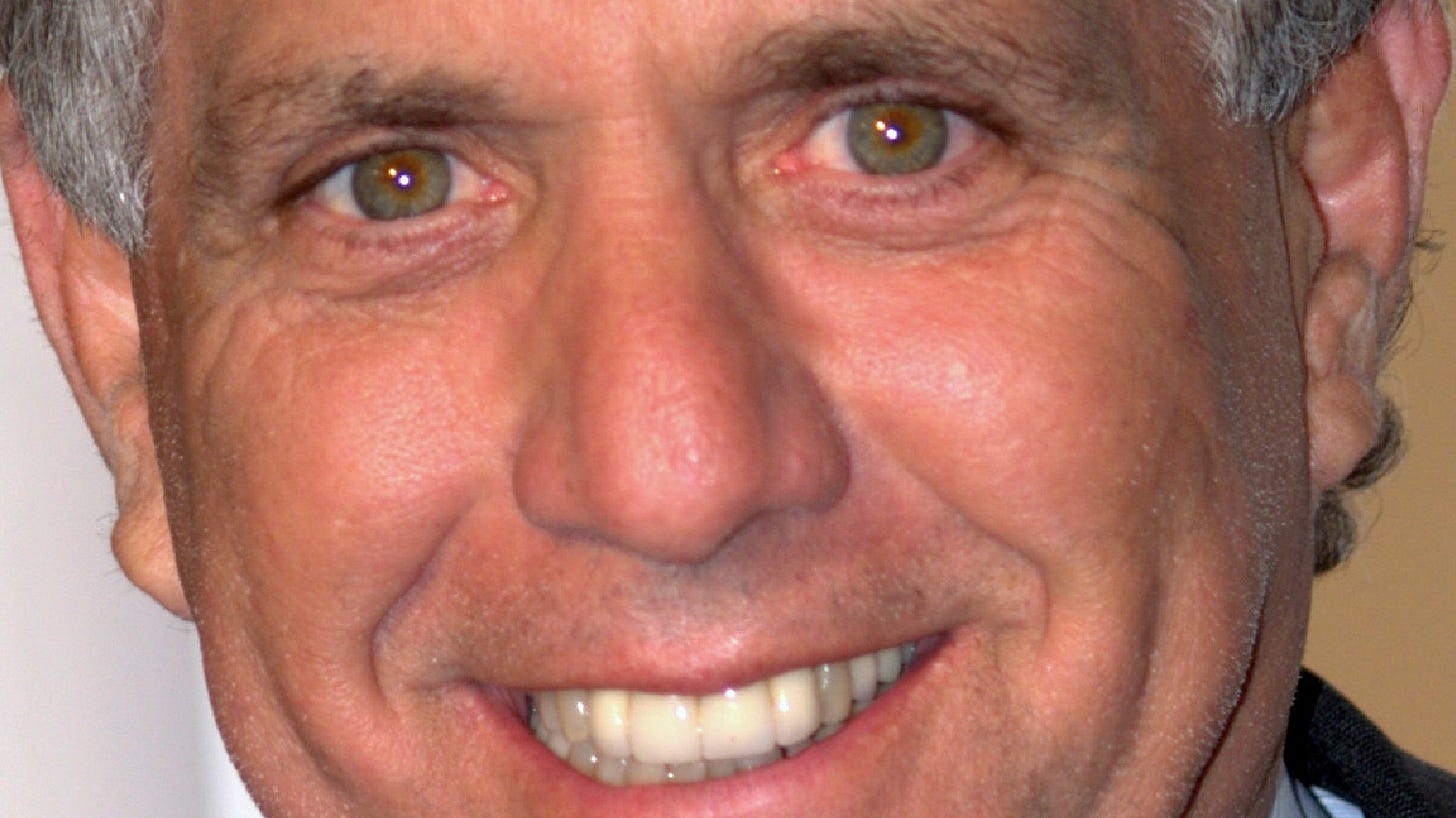Indignity Vol. 2, No. 88: Wait, CBS did what?
REALITY TV DEP'T.

CAN YOU REMEMBER what it was like to have the time to be appalled by something? Being appalled by everything is no substitute. Yesterday, I think, this news story about the former CBS CEO Les Moonves went by:
CBS, LAPD captain led cover-up of sexual assault report against Moonves, AG says
That was the Los Angeles Times version of the events. The East Coast version, in the New York Times, was:
Les Moonves and Paramount to Pay $9.75 Million in State Case Tied to Sexual Misconduct
A little procedural, a little drab. More than a little confusing, since the amount of money that New York Attorney General Letitia James announced her office had secured from CBS (now owned by Paramount) and Moonves was $30.5 million.
But there were at least three different astonishing scandals wrapped up in the announcement. One was that CBS allegedly covered up its knowledge of sexual misconduct accusations against Moonves, hiding the impending bad news from its shareholders, even to the extent of having Moonves tell investors "that the #MeToo movement was 'a watershed moment' and that 'it’s important that a company’s culture will not allow for this.'"
But there were at least three different astonishing scandals wrapped up in the announcement.
Another, the one the L.A. Times focused on, was that when a woman brought a sexual assault complaint against Moonves to the police, "an LAPD commanding officer in the Hollywood division" called up a CBS executive to give him a warning, then sent an unredacted copy of the confidential police report to the network, where executives including Moonves shared it around. With that information, the attorney general's office wrote, CBS's head of human resources "began investigating the victim’s personal circumstances and that of her family, including her children, her brother, and her former spouse." The LAPD captain, the report said, continued briefing CBS about the investigation, including meeting with Moonves in person to discuss it.
The third scandal was that, as CBS executives absorbed all of this leaked confidential information about their CEO's misconduct, the attorney general's report said that one of them, the late Gil Schwartz, allegedly used that knowledge and "sold over 160,700 shares of CBS stock and generated millions for himself," in case the news about Moonves might get out and damage the stock price.
What if we could still hit the brakes on the news cycle and take a day to rubberneck at the moral and ethical wreckage here? The New York attorney general said that top CBS executives—the people who decided for decades what millions of people would and wouldn't see on TV—colluded with a crooked LAPD captain to get confidential information about a sexual-assault victim for the sake of corporate damage control, and that one of them did some personal insider trading with that information. Seven years ago, this would have been astonishing and unforgettable. Now it's barely noticeable.


